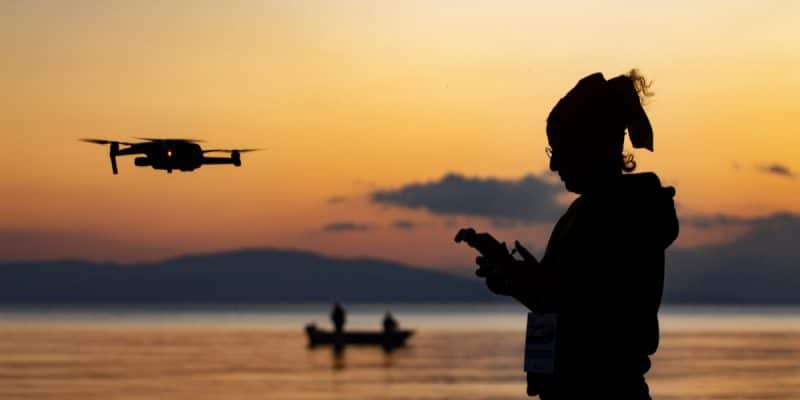In South Africa, manufacturers of drone fishing gear have just lost a court battle against the South African Department of the Environment. The South African government believes that the use of motorised gear for angling increases pressure on certain threatened marine species.
It is the end of a water-based hobby that endangers South Africa’s fisheries resources. On 12 April 2022, a court in Pretoria (South Africa’s administrative capital) ruled against drone manufacturers who challenged a memo from the South African Department of the Environment banning the use of motorised gear in angling. After nearly three weeks of litigation, the court ruled in favour of the South African government, which had been denouncing the negative impact of drone fishing on marine biodiversity for several years.
Promoted since 2016 in South Africa by drone manufacturers, the use of motorised gear in angling also worries scientists. They cite effects such as the capture of endangered species, overfishing and even conflicts between beachgoers and drone pilots. This new practice consists of hauling a line and bait with a drone, so as to fish as far as possible while staying on the coast most of the time. The bait is released by the drone once the prey is located. The technique makes it possible to make large catches such as sharks, which are normally impossible to reach from the beach.
An illegal practice
Drone fishing particularly affects the refuges of endangered species. According to Bruce Mann of the Ocean Research Institute of the South African Association for Marine Biological Research, threatened aquatic species are very often found in areas far from the shore. And it is these areas that are targeted by drones. And yet South Africa’s Environmental Management Act of 1998 prohibits the use of drones above 2500 feet. But regardless of this rule, drone fishermen were operating well above the required limits.
In addition to presenting an unfair advantage over manual fishing, the use of drones encompasses other issues such as privacy. The cameras with which these gadgets are equipped can film people, including tourists, in their privacy. Thus, banning drone fishing could not only protect marine life, but also people’s sense of security and overall fairness in angling.
Endangered sharks
The ban on drone fishing comes at a time when the southern African country is experiencing a gradual disappearance of white sharks. A study commissioned by the South African government shows a sharp decline in these marine mammals. Off False Bay east of Cape Town, the number of white shark sightings was 205 per year between 2010 and 2016.
Read also-SOUTH AFRICA: Cormorant birds driven to extinction by overfishing
In 2018, however, there were only 50 sightings. These sharks have disappeared from the horizon, even during the months that usually constitute their peak presence. In two years, only one sighting has been confirmed in the area, according to the same study.
Boris Ngounou







